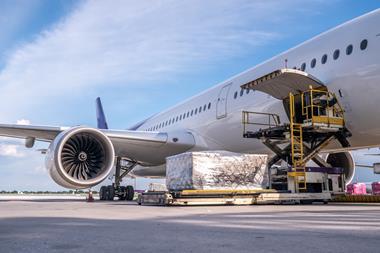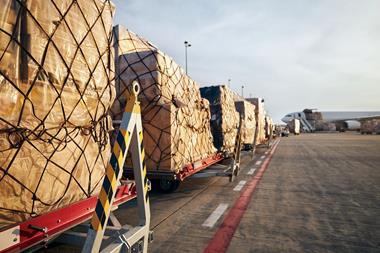Freight forwarders are ready to tackle emissions but support from governments is needed to help them overcome the challenges in achieving environmental sustainability.
The freight transportation industry significantly contributes to climate change, accounting for around 11% of global greenhouse gas emissions.
However, freight forwarders and their transportation partners increasingly recognise the need to invest in sustainability.
There are several reasons for this. First, it is the right thing to do. Climate change is a severe threat to the planet, and the freight forwarding industry is responsible for reducing its environmental impact.
Second, freight forwarders are facing increasing pressure from their customers to decarbonise. Many businesses are now setting ambitious sustainability goals and looking for their freight forwarders to help them meet those goals.
Third, freight forwarders know that the costs will ultimately be higher if they don't invest in sustainability now.
Governments are increasingly regulating carbon emissions, and the cost of carbon offsets is rising.
Despite the best intentions of freight forwarders and their partner airlines, the industry has many challenges to achieving environmental sustainability.
One of the biggest challenges is the need for more sustainable aviation fuel (SAF).
This is a low-carbon alternative to traditional jet fuel, but it is currently only available in limited quantities.
Another challenge is the need for clear and concise standards for environmental sustainability in the freight forwarding industry.
This ambiguity makes it difficult for freight forwarders to measure and report on their environmental impact, making it difficult for customers to compare the sustainability performance of different freight forwarders.
Despite these challenges, there are several things that freight forwarders can do to reduce their environmental impact.
They can invest in new technologies, such as fuel-efficient aircraft and electric freight handling vehicles, and use renewable solar energy for offices and warehouses.
They can also work with their customers to optimise shipping routes and consolidate shipments.
Governments also have a role in promoting environmental sustainability in the freight forwarding industry.
They can invest in sustainable fuel refineries and develop clear and concise standards for ecological sustainability.
Airforwarders Association (AfA) members continue their commitment to environmental sustainability with programmes such as these:
- Kuehne+Nagel aims to achieve net zero emissions by 2050. The company is investing in SAF, electric vehicles, and renewable energy.
- DSV has set a goal of reducing its carbon emissions by 40% by 2030. The company is investing in SAF, fuel-efficient aircraft, and energy-efficient facilities.
- DB Schenker has set a goal of achieving net zero emissions by 2040. The company is investing in SAF, electric vehicles, and renewable energy.
These companies are leading the way in the freight forwarding industry's transition to sustainability.
Their programmes are ambitious, but they are achievable. By working together, freight forwarders, airlines, customers, and governments can make a difference.
The environmental sustainability challenge is like a giant elephant that needs to be eaten but only one bite at a time. Some suggestions for manageable ways to begin tackling the issue include:
- Investing in SAF. This is the most critical lever for reducing the carbon emissions of the air cargo industry. Governments and freight forwarders need to work together to increase the supply and availability of SAF. Some forwarders working with airlines now sell freight transportation on flights using SAF.
- Develop clear and concise standards for environmental sustainability. Setting understandable thresholds will make it easier for freight forwarders to measure and report on their environmental impact and make it easier for customers to compare the sustainability performance of different freight forwarders.
- Support freight forwarders in making the transition to sustainability. Governments can provide financial incentives and other support to help freight forwarders invest in new technologies and practices.
By taking these steps, we can start to make the freight forwarding industry more sustainable, but we cannot do it alone.
Governments must play a leading role by investing in sustainable fuel refineries, developing clear and concise standards for environmental sustainability, and supporting freight forwarders in making the transition to greener operations.
We can create a more sustainable future for the freight forwarding industry and the planet, but only by working together.
https://www.aircargonews.net/monthly-exclusive/fowarder-focus-las-long-awaited-air-cargo-development/
https://www.aircargonews.net/freight-forwarder/video-airfreight-faces-increase-in-regulation-over-the-coming-five-years/















